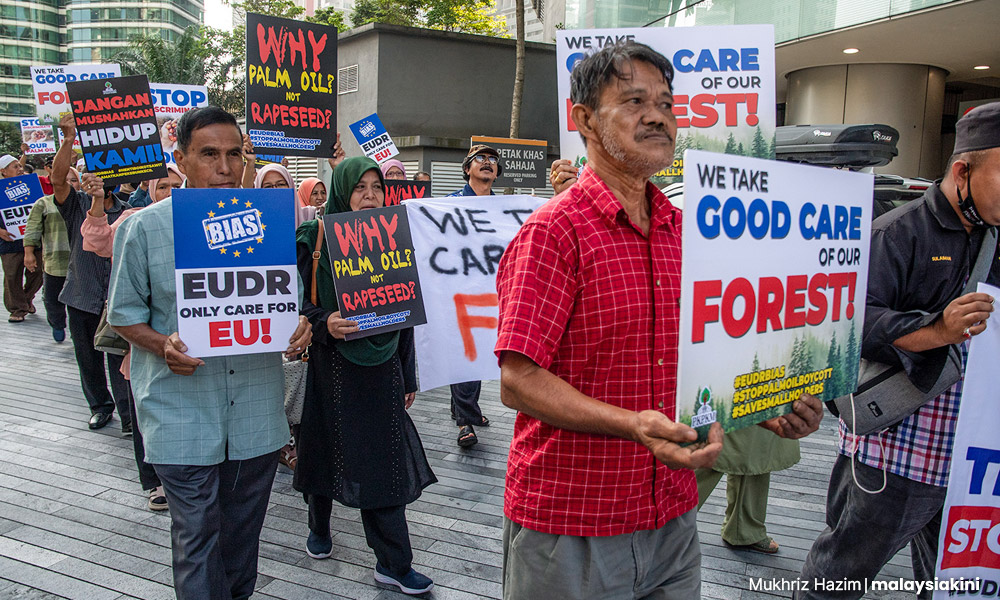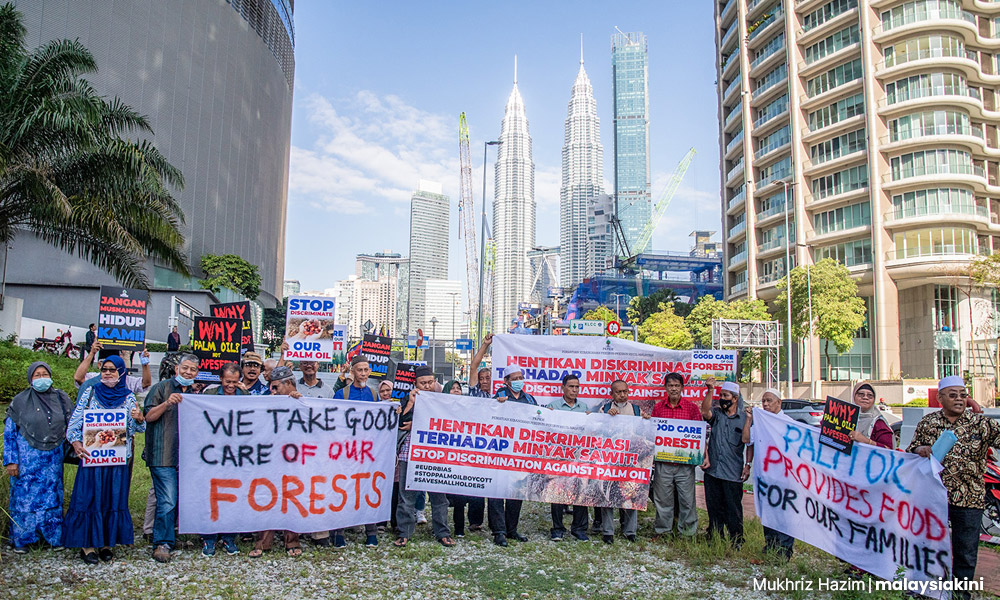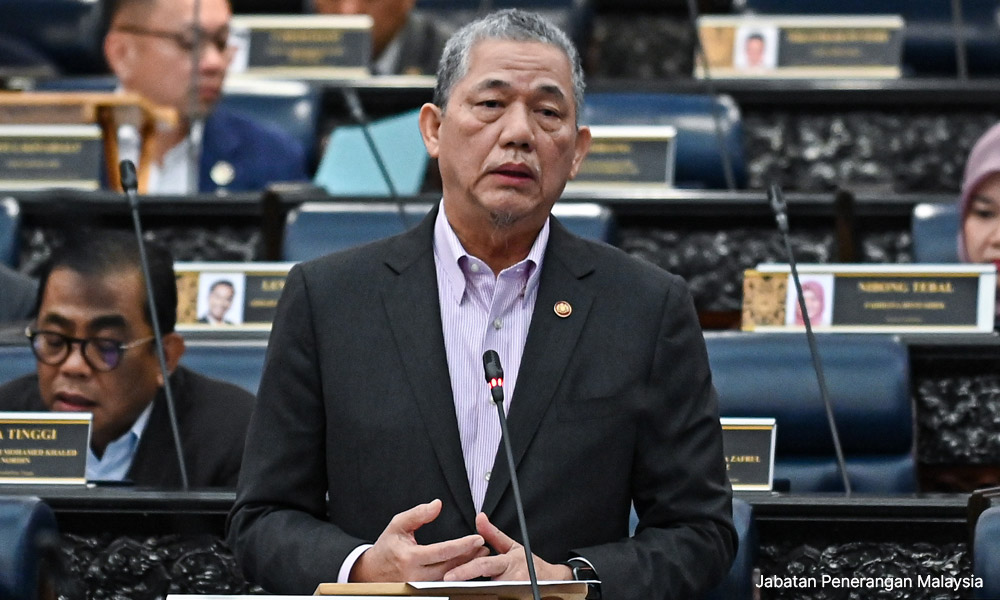Several plantation groups said the European Union (EU)’s potential to label Malaysia as “high risk” for deforestation is “demeaning and unacceptable”.
They were referring to the EU’s new regulation that aims to ban certain products and commodities linked to deforestation and forest degradation.
“By labelling the country as high risk, the livelihood and source of income of palm oil smallholders would be affected.
“It would also reflect badly on the country’s image and potentially disrupt our international supply chain,” said National Association of Smallholders deputy president Adzmi Hassan to reporters after attending a town hall meeting at Menara Felda in Kuala Lumpur today.
The meeting, which was also attended by Federal Land Development Authority (Felda) and Rubber Industry Smallholders Development Authority (Risda) members, was held to showcase a petition inked by local smallholders against the EU’s new regulation.
The concern of being labelled “high risk” was among the items stated in the petition where the delegates also claimed that Malaysia has an exemplary record of forest protection and sustainable production.
The petition stated that the label could influence other countries to snub Malaysian exports, impacting the country’s international trade.
There was also a demand for the EU to exempt non-European smallholders from its regulation to ease their burdens and grant them access to the European supply chain.
Additionally, the delegates also called for the Malaysian Sustainable Palm Oil (MSPO) standards to be recognised under the move.

“Our smallholders are mostly from indigenous groups and heavily rely on extracting palm oil as their main source of income.
“When they are cut off from the market, how does the EU expect them to survive?
“On top of this regulation, they already had to pay a lot for an MSPO certificate. The smallholders should not be given such a burden,” Adzmi said.
The petition, which was inked by 500 smallholders, was submitted to the EU embassy after the meeting.
Michalis Rokas, an ambassador of the EU embassy, confirmed via Twitter that the petition had been received today.
He said the embassy will convey the groups’ concerns to the EU. He also emphasised the regulations will not affect smallholders in Malaysia.
“Malaysia already has systems to ensure non-deforestation and traceability so we do not expect any extra costs for smallholders.
“The EU and its state members stand ready to support Malaysian palm oil smallholders in their journeys towards sustainability,” Rokas added.
What is the EU deforestation regulation?
According to its website, the EU reached a provisional deal on Dec 6 last year to ban the import of goods identified as being a “driver of deforestation”, if they originate from land deforested after Dec 31, 2020.
These goods include beef, soy milk, cocoa, rubber, timber, and palm oil. Malaysia is the second-largest palm oil producer in the world.

Malaysia did not take well to the new regulation, with the country going as far as to accuse the import curb of being protection for the EU’s domestic oilseed industries.
Furthermore, Malaysia might stop palm exports to the EU because of this.
However, it is not clear whether Malaysia is considering a direct ban on exports to the EU or enacting tariffs.
Last December, Deputy Prime Minister Fadillah Yusof also shared his distaste with the regulation, saying that the bloc’s justification of the move was based on “unsound reason”.
Fadillah, who is also the plantation and commodities minister, also expressed concerns over the impact the new rules may have on smallholders and also called out the bloc for attempting to protect their domestic market.

He added that Malaysian palm oil is “sustainable and one of the most certified vegetable oils in the world”.
Fadillah highlighted that the country was already abiding by the MSPO and there was no need to follow more standards as they would bring “further costs and burden”.
If the new rules are applied, all companies importing into the EU will have to conduct strict due diligence when placing their products on the EU market - which is the second-biggest market for consumption of the targeted products, after China. - Mkini




No comments:
Post a Comment
Note: Only a member of this blog may post a comment.